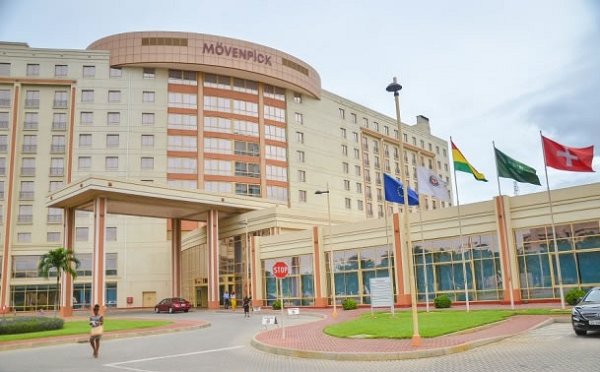
Investment in hospitality sector necessary game changer
There can be no mention of the tourism sector without reference to the hospitality sub-sector, which is very much an integral part of tourism.
When tourists visit, they must get nice places to rest, freshen up, live, wine, dine and be entertained, all of which put the onus on the hospitality sub-sector. This means that a weak hospitality sub-sector will impact negatively on the tourism sector of any country.
Advertisement
It is, therefore, great news that currently the hospitality sub-sector is creating two out of every 10 jobs in the country, as made known by President Nana Addo Dankwa Akufo-Addo at the opening of the Tema branch of Alisa Hotels Group, an indigenous company, recently.
The disclosure too that the sub-sector had become the third largest contributor to the country’s total productivity, after cocoa and oil and gas, tells the story of a vibrant sub-sector which can, with consistent and increased investments, do even more in terms of employment and productivity.
Fortunately, the country does not have to put up artificial touristic attractions, as pertains in other jurisdictions, because nature has bequeathed to us so many natural attractions that are the envy of many, with many of such wonders of nature remaining untapped for decades.
This is why policy initiatives are needed more than ever to make the tourism sector robust. Thankfully, the President has indicated that the government is a cheerleader for the private sector and will continue to introduce policy initiatives aimed at creating the enabling environment for the private sector to flourish, as well as build a business friendly environment that will enhance entrepreneurship, a vital component of economic growth and development.
Indeed, if the government walks the talk and creates the environment that will attract investment in tourism and hospitality, and with the support of international partners and individuals invest heavily in key tourism attractions, it will boost tourism arrivals this year and beyond, and inroads will be made to catapult the hospitality sub-sector to the top as the most productive sector.
According to latest figures from the Ghana Statistical Service (GSS), the country recorded 13.9 per cent unemployment rate in the second quarter of this year, showing that we are not out of the woods yet as far as unemployment is concerned.
The GSS, in its report, said about 1.74 million (13.4 per cent) of the total working population of 13 million in the age bracket of 15 years and above were unemployed in the first quarter of the year.
On the flip side, as of 2020, travel and tourism alone contributed 4.2 per cent to employment in the country, while in the previous year, the total contribution of the industry covered six per cent of the country's total employment.
The contribution of the sector to employment could be even more with the right infrastructure. We urge the government to speed up its plans to build a $10-million tourism and hospitality training school in Accra to serve West Africa and provide customer-care training for operators in the hospitality value chain. That will definitely afford more Ghanaians employment opportunities in the sector.
We also pray the government to fast-track the rehabilitation of earmarked tourist sites, including the Aburi Botanical Gardens, the Yaa Asantewaa Memorial Museum, the Kente Museum in Kumasi, among others, to provide jobs for tour guides and more personnel in hospitality facilities which would have to cater for the guests.
It is refreshing that the Ministry of Tourism, Arts and Culture has already trained 800 people, out of a projected 2,000, in the sector, particularly in the area of customer service, to improve service delivery, which has been lacking in the hospitality sub-sector.
As truly espoused by the Chief Executive Officer of the Alisa Hotels Group, Kwame Ofosu Bamfo, the hospitality industry is a powerful generator of career opportunities.
If his group has been able to employ over 750 people, with the Alisa range of hotels alone employing up to 500 of them, then, indeed, the sub-sector is well able to take many out of their unemployment status, with the right training and infrastructure.
The government must also offer some incentives to the industry by way of access to cheaper credit to help boost operations in the industry and create more jobs for the youth, both skilled and unskilled.